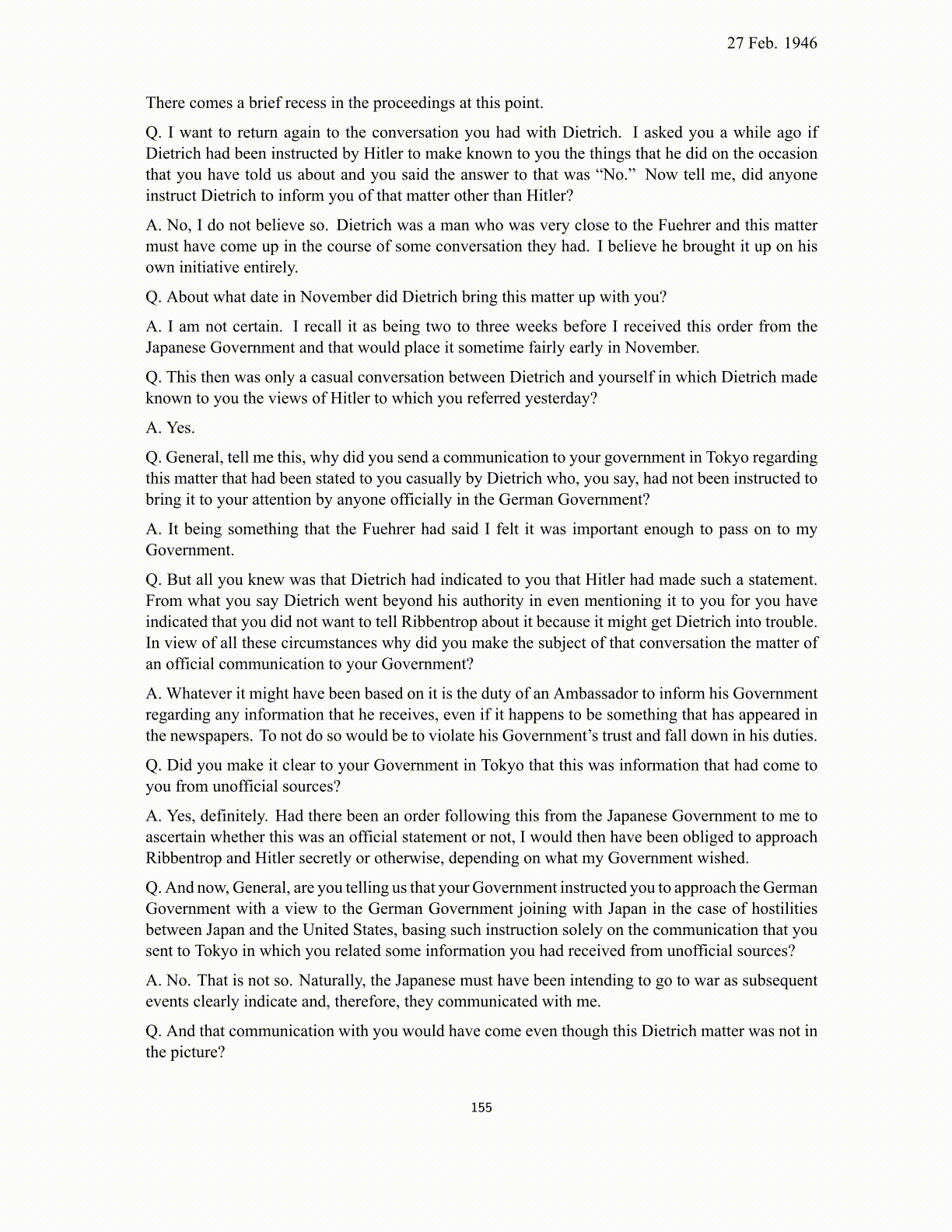
27 Feb. 1946 There comes a brief recess in the proceedings at this point. Q. I want to return again to the conversation you had with Dietrich. I asked you a while ago if Dietrich had been instructed by Hitler to make known to you the things that he did on the occasion that you have told us about and you said the answer to that was “No.” Now tell me, did anyone instruct Dietrich to inform you of that matter other than Hitler? A. No, I do not believe so. Dietrich was a man who was very close to the Fuehrer and this matter must have come up in the course of some conversation they had. I believe he brought it up on his own initiative entirely. Q. About what date in November did Dietrich bring this matter up with you? A. I am not certain. I recall it as being two to three weeks before I received this order from the Japanese Government and that would place it sometime fairly early in November. Q. This then was only a casual conversation between Dietrich and yourself in which Dietrich made known to you the views of Hitler to which you referred yesterday? A. Yes. Q. General, tell me this, why did you send a communication to your government in Tokyo regarding this matter that had been stated to you casually by Dietrich who, you say, had not been instructed to bring it to your attention by anyone officially in the German Government? A. It being something that the Fuehrer had said I felt it was important enough to pass on to my Government. Q. But all you knew was that Dietrich had indicated to you that Hitler had made such a statement. From what you say Dietrich went beyond his authority in even mentioning it to you for you have indicated that you did not want to tell Ribbentrop about it because it might get Dietrich into trouble. In view of all these circumstances why did you make the subject of that conversation the matter of an official communication to your Government? A. Whatever it might have been based on it is the duty of an Ambassador to inform his Government regarding any information that he receives, even if it happens to be something that has appeared in the newspapers. To not do so would be to violate his Government’s trust and fall down in his duties. Q. Did you make it clear to your Government in Tokyo that this was information that had come to you from unofficial sources? A. Yes, definitely. Had there been an order following this from the Japanese Government to me to ascertain whether this was an official statement or not, I would then have been obliged to approach Ribbentrop and Hitler secretly or otherwise, depending on what my Government wished. Q. And now, General, are you telling us that your Government instructed you to approach the German Government with a view to the German Government joining with Japan in the case of hostilities between Japan and the United States, basing such instruction solely on the communication that you sent to Tokyo in which you related some information you had received from unofficial sources? A. No. That is not so. Naturally, the Japanese must have been intending to go to war as subsequent events clearly indicate and, therefore, they communicated with me. Q. And that communication with you would have come even though this Dietrich matter was not in the picture? 155